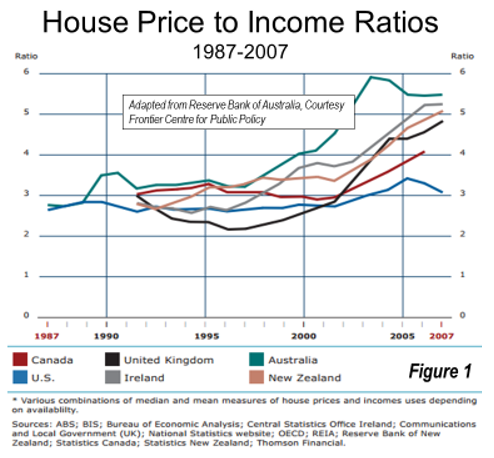Australia is not particularly out of line with many other rich countries in the world, many of whom treat negative gearing in different ways to us. Demographia compares property prices in a number of countries and markets on the basis of the ratio between median house prices and gross median family income.
Australia’s overall affordability index is 6.4, which is less than New Zealand (9.7) and Hong Kong (19.0). Internally, Australia’s affordability ranges between 2.5 in Karratha, to 12.2 in Sydney.
From the graph below you can see that house prices took off as interest rates retreated from their highs in the 70s and 80s.
Advertisement

Source: 12th Annual Demographia International Housing Affordability Survey: 2016 p.7
It’s the mixture of supply and demand, plus the availability and price of credit, that are the strongest drivers of price.
His argument about the ACCB is similarly flawed. While he argues it will cut the cost of building high rise apartments, and that this will flow on to housing, this will be a passing effect.
If it is cheaper to build apartments, then over time developers will be able to bid up the price they pay for sites, given the willingness of the market to pay a given price.
Landowners, not purchasers, will be the biggest beneficiaries.
Advertisement
Indeed, it looks likely that apartment prices will fall in the short term, not because of the ABCC, should it ever arrive, but because of an oversupply. This is particularly true in Brisbane where the state government opportunistically increased the densities on a large number of near city sites, increasing supply, and profitability, without the need to manufacture more land.
The area where the ABCC will have its biggest effect will be on government projects - things like freeways, bridges and tunnels, where land is a very small part of the cost, and construction a significant part.
The reasons for opposing changes to negative gearing have little to do with the long run, and everything to do with maintaining the current integrity and justice of the taxation system, and keeping prices steady in the near run.
Discuss in our Forums
See what other readers are saying about this article!
Click here to read & post comments.
8 posts so far.